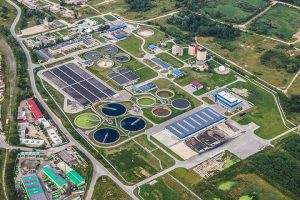
Bachelor of Science in Environmental Engineering
Environmental engineering focuses on developing solutions to improve water and air quality, manage solid waste, promote renewable energy and mitigate climate changes. Environmental engineers use elements of biological, chemical, civil and mechanical engineering to manage natural resources sustainably to promote overall environmental health.

Ph.D. in Civil Engineering
Graduate programs offered in Engineering prepare students for leadership positions in academia, research and advanced practice engineering careers. Major program areas include structural mechanics, structural engineering and materials, geotechnical and geoenvironmental engineering, environmental engineering, hydrology and water resources engineering and transportation engineering.

Master of Science in Civil Engineering
Graduate programs offered in Engineering prepare students for leadership positions in academia, research and advanced practice engineering careers. Major program areas include structural mechanics, structural engineering and materials, geotechnical and geoenvironmental engineering, environmental engineering, hydrology and water resources engineering and transportation engineering.

Accelerated BS to MS in Civil and Environmental Engineering
Earn a master’s (MS) degree in as little as one year after your bachelor’s degree, with up to 12 credit hours of your undergraduate coursework also counted towards your MS.

Bachelor of Science in Civil Engineering
The curriculum for the Bachelor of Science (BS) in Civil Engineering prepares students well to become licensed Professional Engineers (PE). The BS degree in civil and environmental engineering is accredited by the Engineering Commission of ABET.